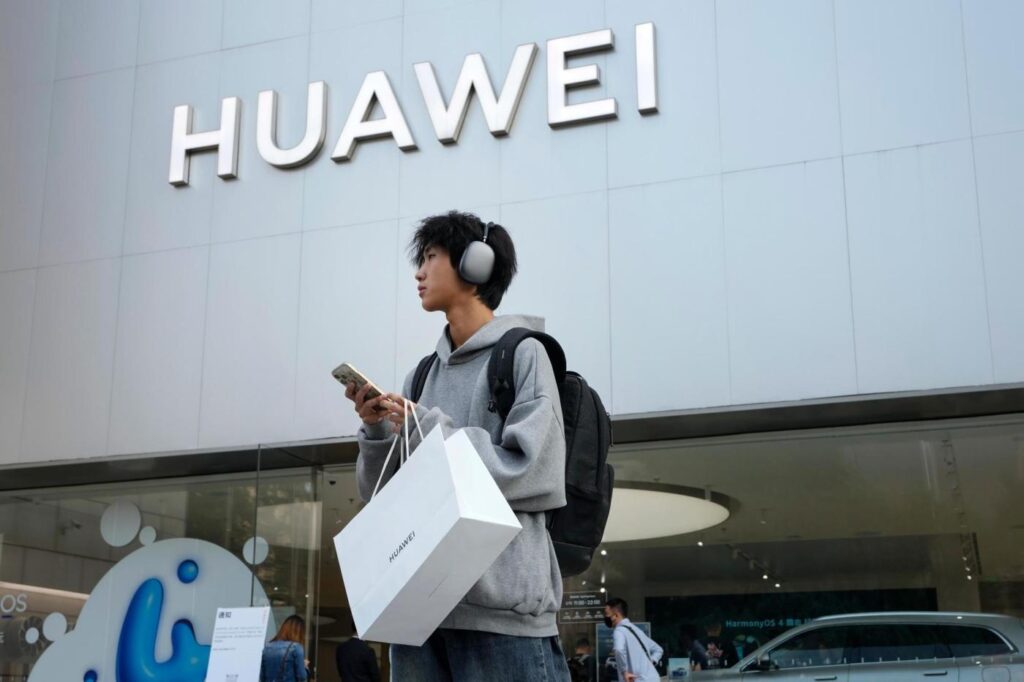
In a significant legal development, a U.S. judge has ruled that Huawei Technologies, the Chinese telecom giant, must face a series of criminal charges including racketeering, wire and bank fraud. U.S. District Judge Ann Donnelly delivered the ruling on Tuesday, dismissing Huawei’s request to quash the 16-count federal indictment, stating that the company’s arguments were premature.
The indictment, which has been a focal point of U.S.-China tensions, accuses Huawei and its subsidiaries of engaging in a scheme to steal U.S. trade secrets and conduct business in violation of American sanctions. The case also alleges Huawei’s involvement in installing surveillance equipment for Iran, enabling the government to spy on protesters during the 2009 anti-government demonstrations.
Background of the Case
The charges against Huawei are part of a broader strategy initiated during President Donald Trump’s administration, which raised national security concerns about Huawei’s role in global telecom networks. The U.S. has actively lobbied its allies to exclude Huawei from their high-speed wireless networks, citing potential risks to information security.
In January 2019, the Justice Department’s indictment accused Huawei of using a Hong Kong shell company, Skycom, to sell equipment to Iran, contravening U.S. sanctions. The company’s chief financial officer, Meng Wanzhou, was charged with fraud for allegedly misleading HSBC about Huawei’s dealings in Iran. Meng, who is also the daughter of Huawei’s founder, was arrested in Canada in December 2018 at the behest of the U.S. but was released in September 2021 following a diplomatic agreement.
Huawei’s Legal Battle
Huawei’s legal team has argued that the charges are overly broad and lack specificity, contending that some allegations are “impermissibly extraterritorial.” They also claim that the case does not sufficiently involve domestic wire and bank fraud to justify the charges.
Despite these legal challenges, Huawei has faced significant operational hurdles due to U.S. sanctions that have restricted its access to critical technology, including processor chips. In response, the company has accelerated its development of indigenous technologies and shifted its business focus towards the Chinese market and sectors less affected by U.S. sanctions, such as industrial network technology.
International and Economic Implications
The legal proceedings against Huawei underscore the ongoing geopolitical tensions between the U.S. and China. Chinese officials have accused the U.S. of “economic bullying” and using national security as a pretext to suppress Chinese companies. This case is emblematic of the broader trade and technology disputes that have characterized U.S.-China relations in recent years.
“The biggest maker of network gear, Huawei struggled to hold onto its market share under sanctions that have blocked its access to most U.S. processor chips and other technology.”
The outcome of this case could have far-reaching implications for international trade and technology sectors, potentially influencing how global companies navigate U.S. sanctions and international compliance regulations.
Looking Ahead
As the legal proceedings continue, Huawei’s ability to maintain its market position will likely depend on its capacity to innovate and adapt to a rapidly changing geopolitical landscape. The company’s focus on developing new technologies and exploring untapped markets may determine its future trajectory.
The case against Huawei is set to be closely monitored by international observers, as it may set precedents for how similar cases are handled in the future. The legal battle also highlights the intricate interplay between technology, national security, and international diplomacy.







